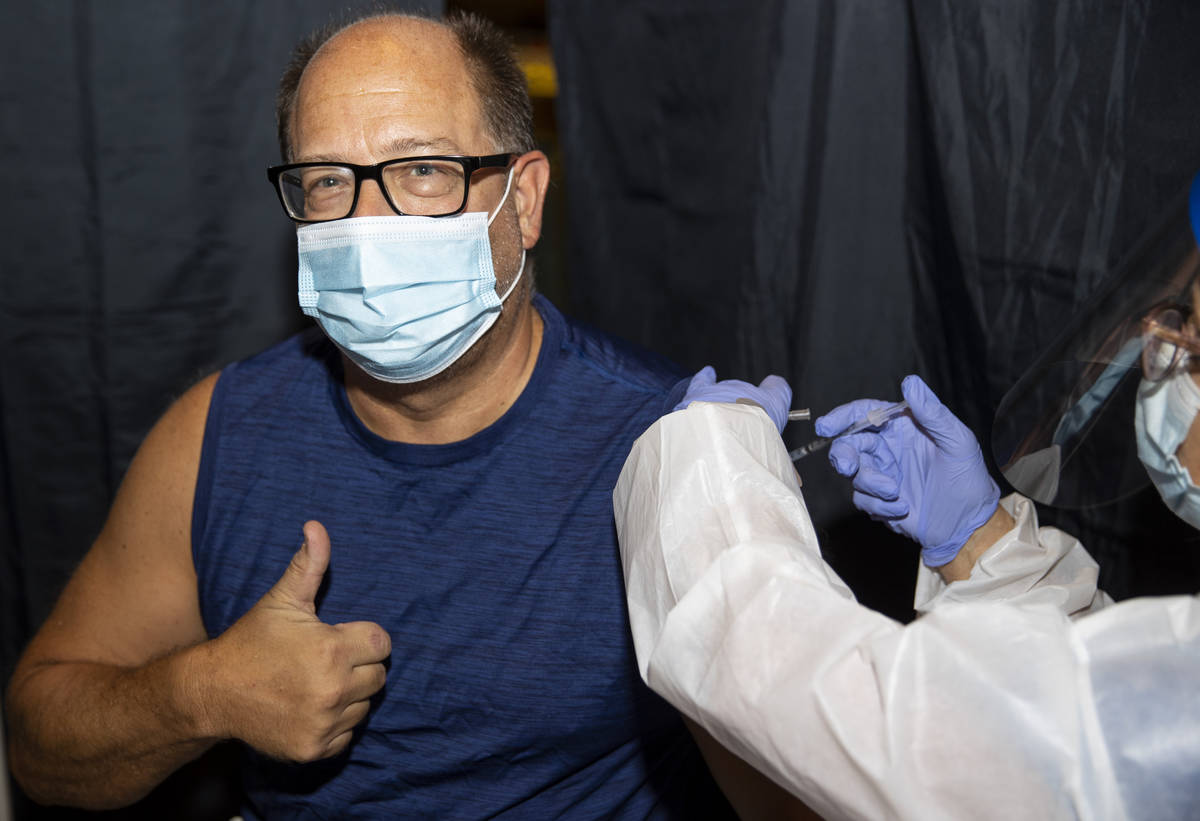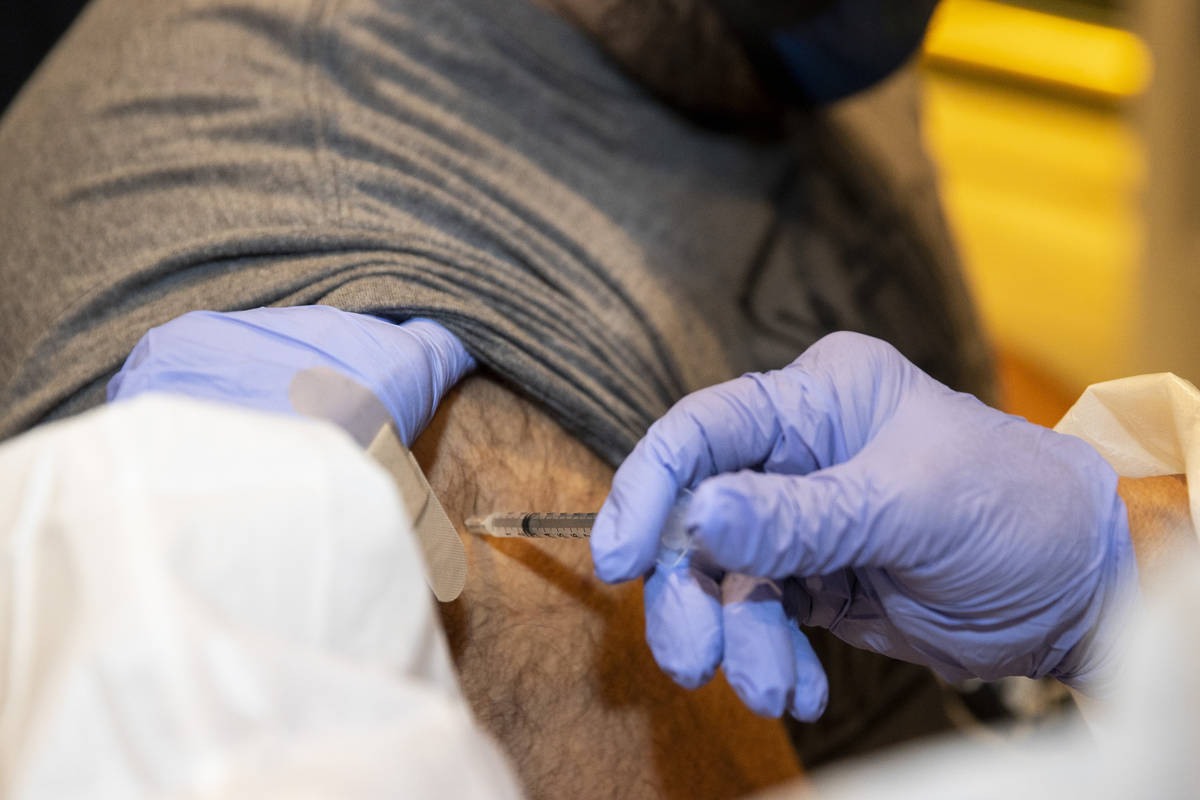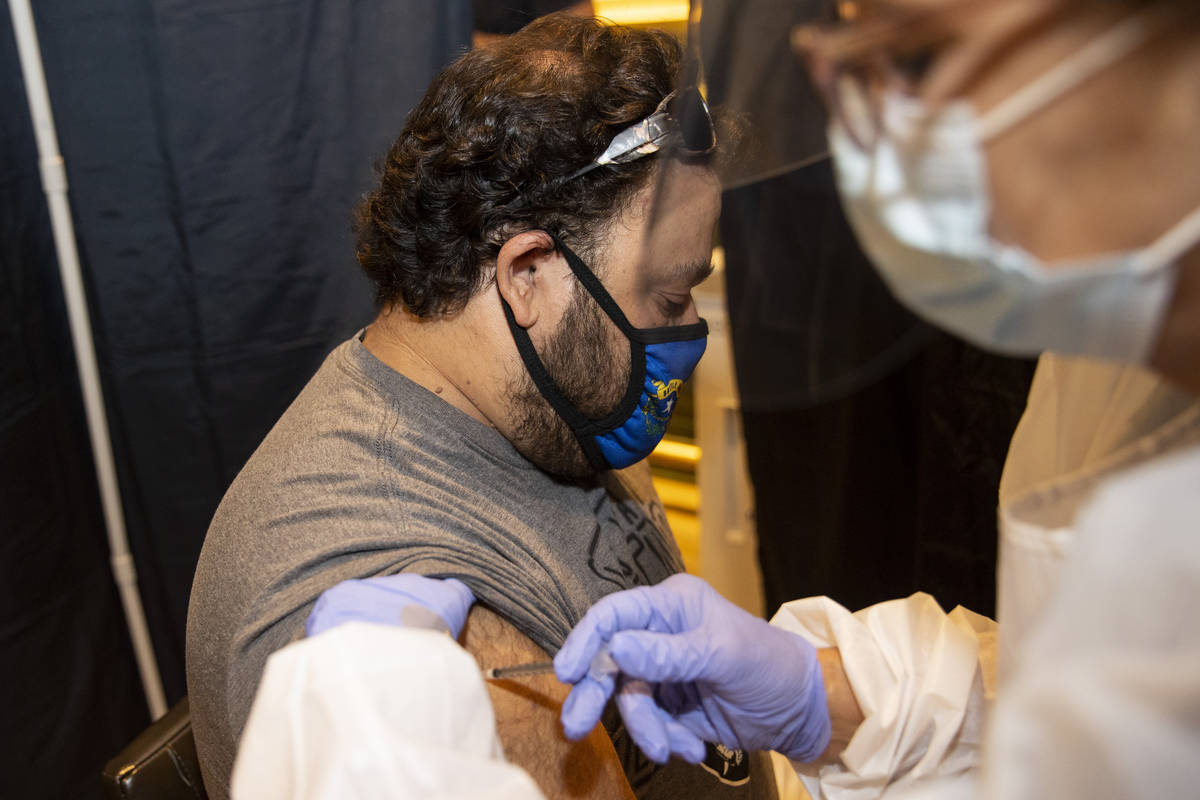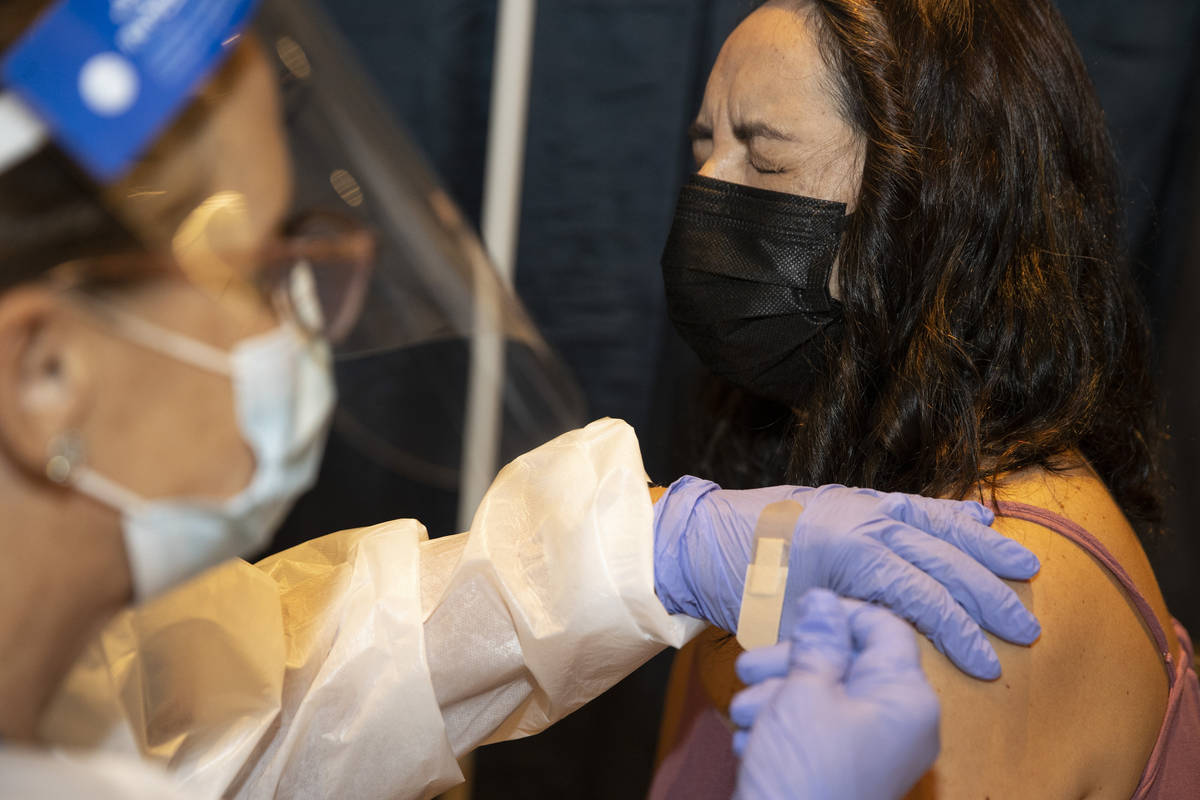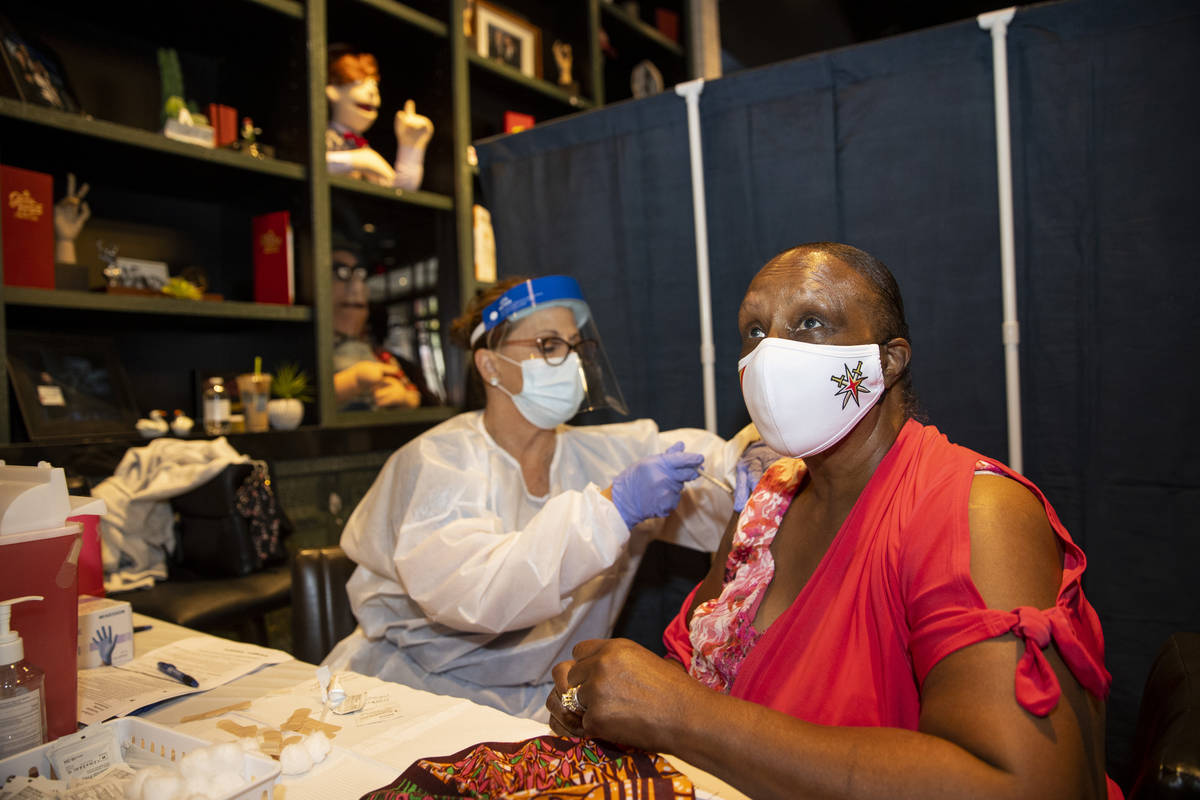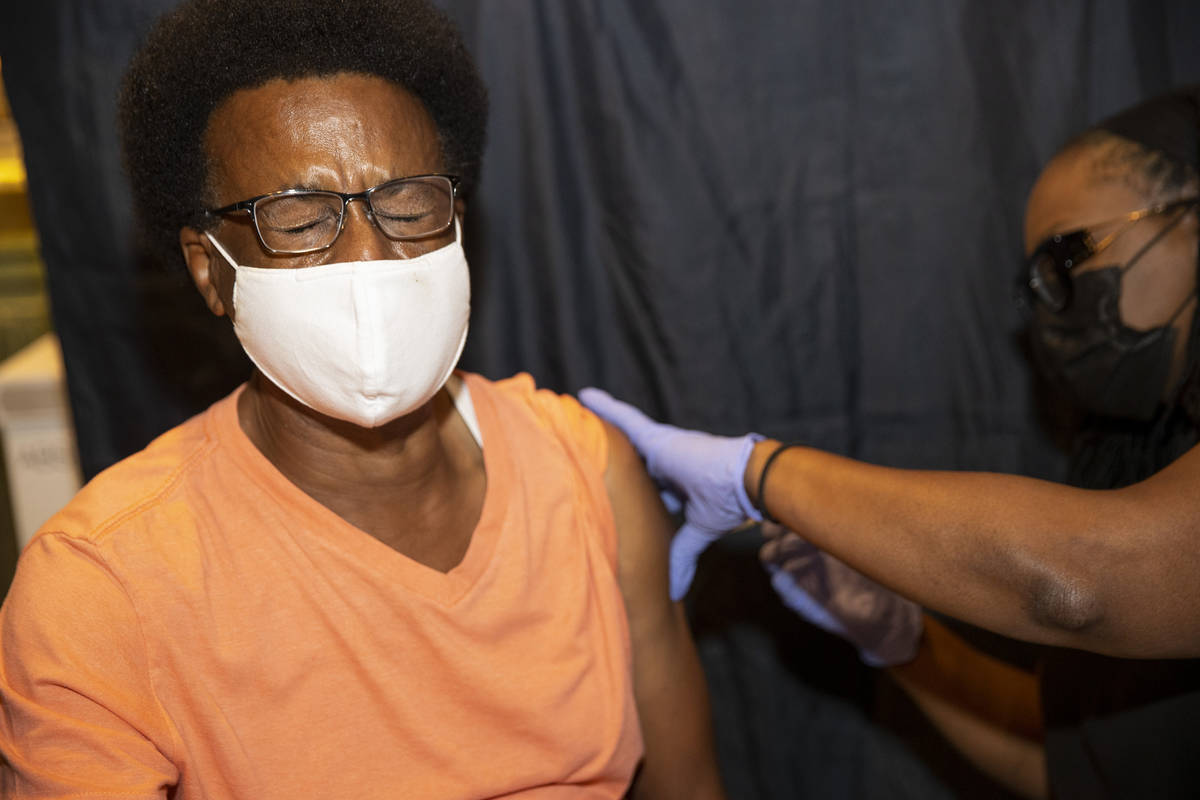Nevada vaccination rate low, but other factors help fuel COVID surge
Nevada is experiencing one of the highest rates of new COVID-19 cases in the country, and ranks 34th among states when it comes to numbers of fully vaccinated individuals.
The return of pre-pandemic behaviors and crowded indoor gatherings, along with less-than-impressive vaccination rates, all helped to spark the increase in new cases, health experts say. Then the delta variant, a more infectious strain of the coronavirus, got an early foothold in Nevada, fueling a surge.
The variant is “basically pouring gasoline on a fire,” said Brian Labus, an epidemiologist and assistant professor in UNLV’s School of Public Health.
“And so we were already burning, and we just sped things up,” said Labus, who has served on Gov. Steve Sisolak’s medical advisory team.
As of Thursday, Nevada had the fifth-highest seven-day average of new cases in the country, an improvement from its recent No. 1 ranking, a spot now held by Louisiana.
Only about 51 percent of Nevada’s population 12 and older — the group that is eligible — is fully vaccinated, lagging the national average of 57 percent, according to the Centers for Disease Control and Prevention. In contrast, just 43 percent of Louisiana’s eligible population was fully vaccinated.
Early foothold of delta variant
As of July 3, Nevada had the second-highest rate in the country of the delta variant, which was first identified in India. The variant accounted for 71 percent of Nevada’s genetically identified coronavirus cases in a four-week period, according to the most recent analysis by the CDC. Missouri, which has the fourth-highest rate of cases, ranked No. 1 for the variant.
“We’re a tourist destination, so we’re probably going to get impacted by new variants before other communities,” said Cassius Lockett, director of disease surveillance and control for the Southern Nevada Health District.
The delta variant has been “impacting the unvaccinated so relentlessly,” he said. “Once it got a foothold in Southern Nevada, it quickly went through the pockets of unvaccinated people.”
That quickly translated into a surge in multiple COVID-19 metrics in the state.
“The surge in cases in Nevada is likely caused by the delta variant that is much more infectious than previous strains,” Julie Swann, a professor at North Carolina State University who studies patterns of COVID-19 disease transmission, said in an email.
Ellie Graeden, a consultant to the Nevada Department of Health and Human Services, identified both travel to the state and large indoor gatherings like conventions and concerts as other factors behind the surge.
“The various things that are driving our economy … are then driving (disease) spread as well,” Graeden said at a news briefing Wednesday.
Old behavior, new wave of cases
Gov. Steve Sisolak lifted pandemic restrictions on businesses and gatherings on June 1, when COVID-19 cases were at a low point. Visitors streamed to Las Vegas, and locals eagerly embraced greater normalcy in their lives.
Now traffic to retail establishments and restaurants in Nevada is down only 5 percent from pre-pandemic patterns, according to Google mobility data on the CDC data tracker for COVID-19.
“This is similar to what is happening in many states around the U.S.,” said Swann, who leads a team funded by the CDC and the Council of State and Territorial Epidemiologists that is doing COVID-19 forecasting and intervention analysis.
Fewer people have been wearing masks, a change in behavior that also increases the spread of disease, according to Swann. Recent surveys by Facebook indicate that about 27 percent of Nevadans are wearing masks all or most of the time.
This figure likely will increase. As of Thursday, employees at businesses in Clark County were required to wear masks, regardless of whether they are vaccinated, under a measure approved Tuesday by the Clark County Commission. The Southern Nevada Health District has recommended that everyone wear masks in crowded indoor settings.
The state and county previously required unvaccinated people to wear masks in most public indoor settings, but the policy wasn’t enforced and was often ignored.
With the reopening of Las Vegas, large numbers of people, both locals and tourists, vaccinated and unvaccinated, also have begun to attend large indoor events such as the recent sold-out Garth Brooks concert at Allegiant Stadium.
When thousands of people crowd indoors, the risk of disease transmission increases.
“We might find several dozen cases from a concert,” the health district’s Lockett said. “But often, we cannot tell if it was due to community transmission, or if it was due to attending that concert. But clearly, we do see elevated numbers of cases when we have a concert … but nothing that has led to a well-defined outbreak.”
Lockett emphasized that the health district recommends that everyone wear a mask when in a crowded indoor setting, even if they’re experiencing what he called “pandemic fatigue.”
That human exhaustion is not a problem for the virus, said Swann, the North Carolina State professor.
“Unfortunately, the virus that causes COVID is not done yet,” she said. “Many places will have another surge now, and there will still be pockets that will have surges later.
“This surge will result in hospitalizations and deaths. The vast majority are preventable with vaccination. A vaccine can prevent severe disease, but if you wait until you are in the hospital it is too late.”
Uptick in shots
Taking to heart the public health warnings — or motivated by other factors, such as incentive prizes through the state’s raffle or other giveaways — some Nevadans who delayed getting vaccinated are now rolling up their sleeves.
The state reported Wednesday that nearly 2.5 percent of eligible unvaccinated Nevadans got their first dose of vaccine this week, a 25 percent increase over the prior week and 45 percent higher than the national average. Nevada administered nearly 841 first doses per 100,000 people last week, well above the national average of 580.3 first doses per 100,000, according to state data.
Among those getting a dose Friday in Las Vegas was Khylle Johnson, who’d been fearful of getting a shot but reconsidered as she saw more people getting sick.
“Every time I turn around, someone I know gets COVID,” more than when the community was on lockdown, said Johnson, who got her shot at a vaccination clinic at the College of Southern Nevada’s Charleston Campus.
“Glad that’s over,” she said, throwing her hands in the air.
Contact Mary Hynes at mhynes@reviewjournal.com or 702-383-0336. Follow @MaryHynes1 on Twitter. Review-Journal staff writer Mathew Miranda contributed to this report.



